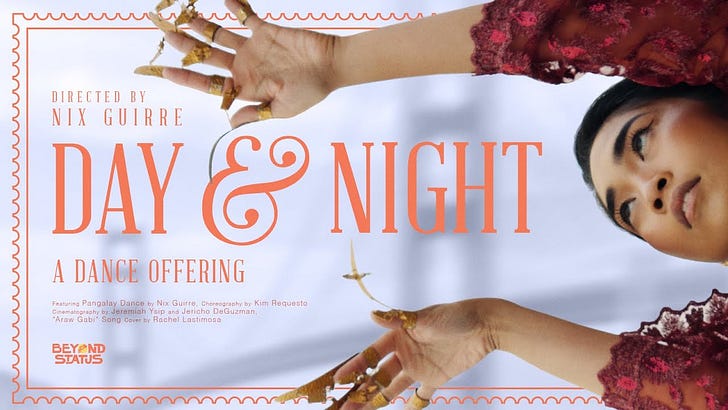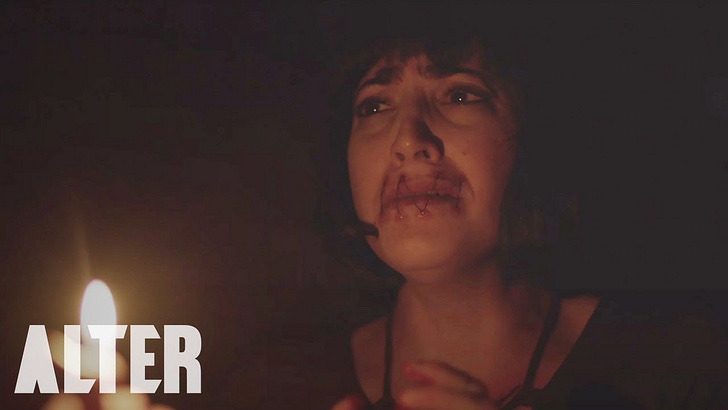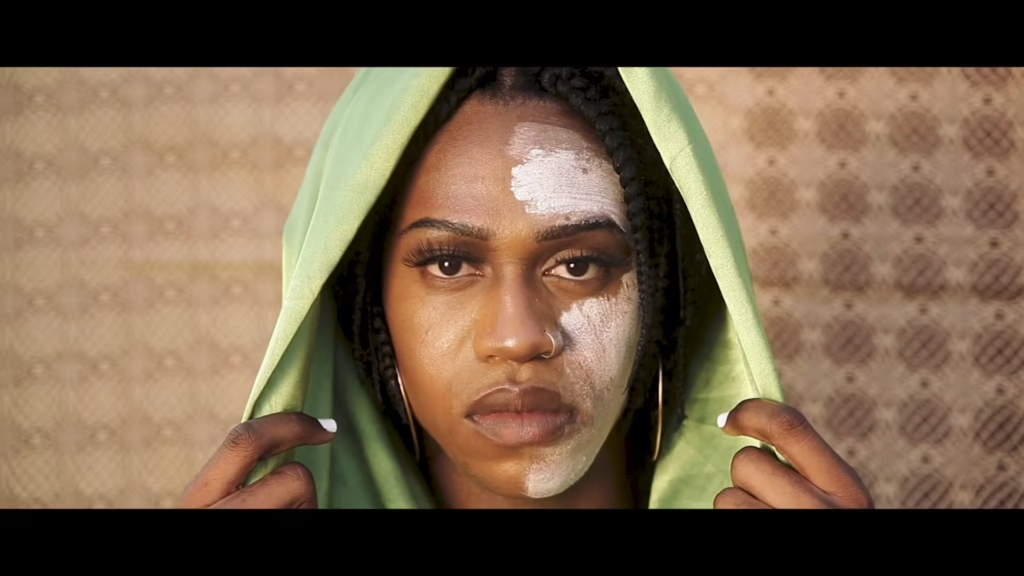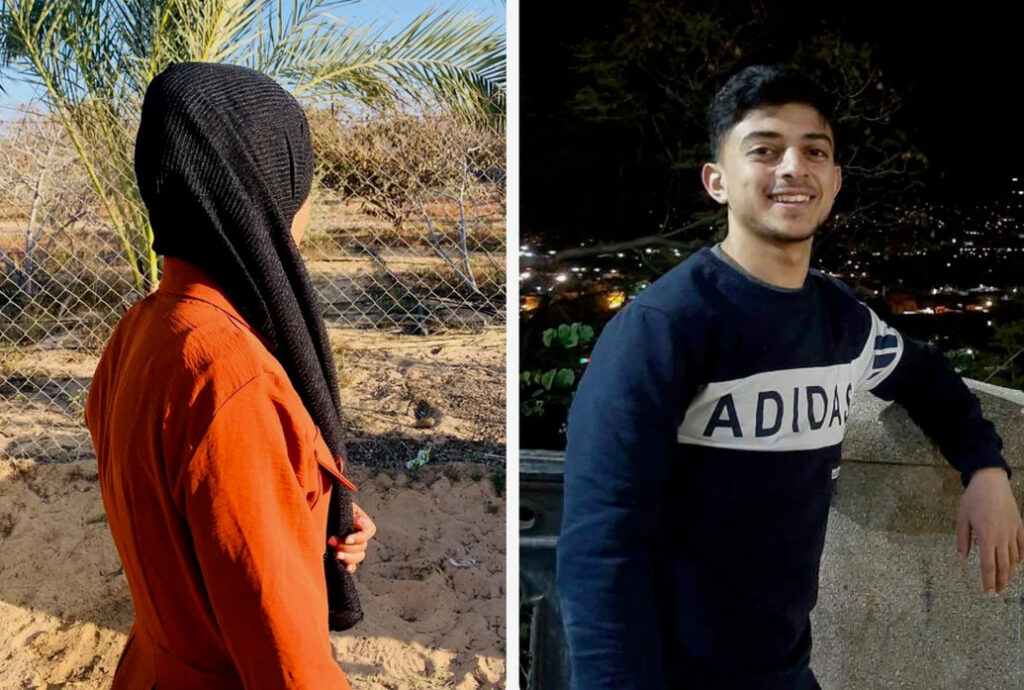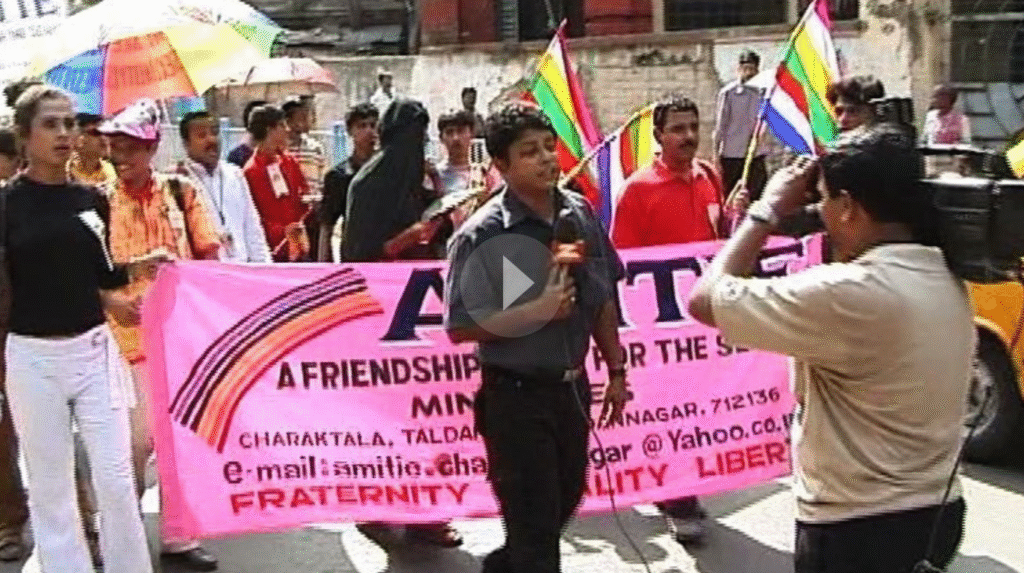Four queer short films are taking to the runway
The Eurovision Song Contest just finished this past weekend, amidst enormous outcry over Israel being allowed to compete and widespread calls to boycott Eurovision. Eurovision claims to have an “apolitical” stance, despite succumbing to member state pressure to ban Russia from competing after their invasion of Ukraine in 2022, but they refuse to do the same in the face of Israel’s ongoing genocide of Palestinians.
The first film reviewed this week, Errorvision, was therefore the impetus for this week’s theme: rather than being directly about Eurovision, it alludes to the cultural impact of spaces like Eurovision (or the equally recent Met Gala in the United States) in highlighting or showing off fashion. Fashion has long been a space for queer creativity and artistry, while simultaneously playing host to tensions around how clothing, art, and commercialization can police our bodies and reinforce the gender binary. To counter those more dominant narratives around high fashion, this week’s short films are all about queer and trans designers and models that feature clothing for people of many genders and bodies, while also not eschewing the way fashion itself can be political, as can all forms of art and culture.
Separately (but kind of connected), I wanted to share that on my other newsletter, , I have been posting a series on genocide, climate injustice, and eco-colonialism in Palestine. If you’re interested, check out the introduction and parts one and two; part three will be coming in a couple days.
None of this week’s films require content notes (see the full list of things I usually warn for). Also, I include pronouns for people mentioned when I can find them explicitly stated. When I cannot, I either use what I see being used for them in articles about them, or I just use their names.
Errorvision, directed by Omar Braika and Shukri Lawrence, features the 2021/2022 autumn/winter line of Palestinian-Jordanian company Trashy Clothing, which you may remember from راكب راكب إنترنت | Wifi Rider, a short documentary about Lawrence that I’ve previously reviewed.
Errorvision both shows Trashy Clothing’s designs and displays the cognitive dissonance between spaces that feature high fashion and Israel’s apartheid, taking place in an empty warehouse with no audience, and featuring accessories like one model’s pageant-style sash that reads “Miss Apartheid”. The fashion line also plays on similar themes to Sharif Waked’s Chic Point (which I’ve also previously reviewed), and, in fact, both films were included in the Fashion Programme at the 2023 Queer Cinema in Palestine Film Festival.
Errorvision
Modern Warriors, directed by Scott Wabano (they/he/she) and filmed by Gerry J. Diaz and Wes Makowsi, is a fashion runway showcasing Indigenous designers and modeled by IndigiQueer and 2Spirit talent, and was featured in the 2022 Sustaining Our Spirits: Virtual 2Spirit Conference.
Scott Wabano, who is a 2Spirit Cree from the Mushkegowuk and Eeyou Istchee territories, is themselves a fashion designer, stylist, and content creator. They own the genderless brand Wabano, which their website describes as “a sustainable fashion brand used to educate society about the impacts of colonization on Indigenous communities”, and he also co-founded the nonprofit Two Spirits of Eeyou Istchee.
Modern Warriors
dapperQ Muse: NYFW 2023, created by Caity Arthur, features queer style website dapperQ’s 8th annual Queer New York Fashion Week Show. I was lucky enough to get to go to a dapperQ fashion event at the Brooklyn Museum with my friend KC in 2015. It was exactly as cool as it looks in the film, and I think I can credit the event with getting me interested in wearing more queer “menswear”-style clothing myself!
dapperQ Muse: NYFW 2023

Trans*Visible’s Mwende Katwiwa Fashion Show, directed by Marion Hoàng Ngọc Hill and Vapourbae, is the 2020 virtual runway show put on by the organization Trans*Visible (since renamed the Trans Alchemy Project) in New Orleans, United States, to feature the Kenyan import fashion collection Jua Kali worn by Black trans and gender-nonconforming models.
Jua Kali – a specifically non-gendered clothing line – was founded by Mwende “FreeQuency” Katwiwa. A storyteller, organizer, speaker, host, workshop leader, chaos collagist, youth worker & performance artist, FreeQuency is a gender renegade Kenyan e|immigrant who self identifies as masculine off center, femme adjacent, an AunTea and|or a prettyboi. They created Jua Kali to bridge the gap between Black folks in the U.S. looking to connect with their roots in the African continent, and Kenyan artisans and makers looking for an international market.
The fashion show has many other cool people involved too. It is emceed by Spirit McIntyre (spirit/they/them), a New Orleans-based cellist, vocalist, lyricist, reiki practitioner, compassionate facilitator, and visual artist. The models – including FreeQuency and Spirit themselves, as well as Pearl Ricks, Devonnino Dorenzo, Indee Mitchell, Jai’ Celestial, Toni Jones, Kenisha Harris, Milan Nicole Sherry and Natalie Barron (who also did ASL interpretation for the show) – are artists, activists, and leaders in the New Orleans community. And finally, co-videographer Marion Hoàng Ngọc Hill is a Vietnamese-British filmmaker whose fantastic short film Goddess House I reviewed in early on in this newsletter.
Trans*Visible’s Mwende Katwiwa Fashion Show

